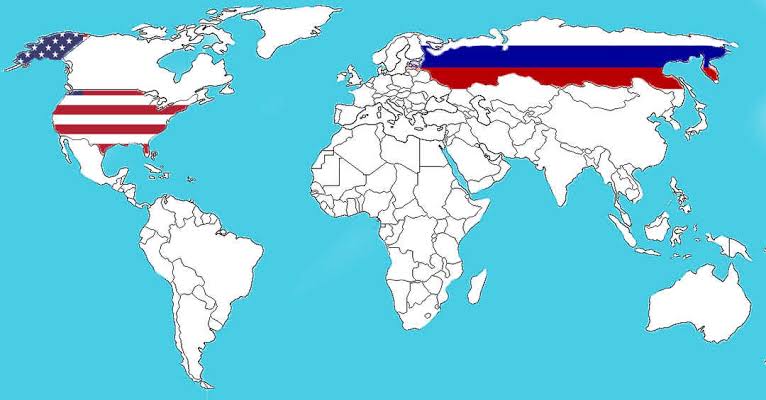Photo: Jeffrey St. Clair.
The United States is imploding. The reign of Donald Trump is not only challenging and threatening the very foundations of its constitutional democracy, it is calling into question the U.S.’s post-World War II hegemonic role. Empires or hegemonic powers rise and fall. Often they are defeated by emerging powers. Sometimes their decline takes place over time. But rarely do they self-destruct as spectacularly as the U.S. is doing. The U.S. implosion is dramatic in its intensity and rapidity. In just over three weeks, Donald Trump has been able to redefine the United States’ position in the world from a global power to an international outcast. Despite whatever military and economic power the U.S. still has, its image and global leadership have been undermined by President Trump’s foreign policy decisions.
The word “implode” is rarely used in international relations. The decline of empires or hegemonic powers is usually due to external forces. The Roman Empire fell because of a series of invasions by “barbarian tribes.” The Ottoman Empire fell because it aligned with Germany during World War I and was formally dismantled after the War because it had chosen the losing side.
The United States is now in the throes of losing its global position by an implosion based on President Trump’s policies. Internationally, Trump has undermined the U.S.’s global image and influence by systematically provoking allies, neutrals and competitors. Besides targeted tariff threats and proposals for territorial expansion into Greenland, Panama and Canada, the president has made two policy decisions that have led to universal condemnation with major global repercussions.
The first is his decision to gut the United States Agency for International Development (A.I.D.). While there are certainly inefficiencies in any institution that spent $38 billion in 2023 and operates in 177 different countries, A.I.D. has been fundamental in projecting a positive American image throughout the world. As an example of its outreach, Samantha Power, the former administrator of A.I.D., wrote in The New York Times how out of the $38 billion spent, “nearly $20 billion was for health programs (such as those that combat malaria, tuberculosis, H.I.V./AIDS and infectious disease outbreaks) and humanitarian assistance to respond to emergencies and help stabilize war-torn regions…Other U.S.A.I.D. investments…pay dividends in the longer term, such as giving girls a chance to get an education and enter the work force, on growing local economies.”
Foreign assistance is all about human capital. It is a crucial element in projecting soft power. When President John F. Kennedy established A.I.D. in 1961, he said in a message to Congress; “We live at a very special moment in history. The whole southern half of the world–Latin America, Africa, the Middle East, and Asia–are caught up in the adventures of asserting their independence and modernizing their old ways of life. These new nations need aid in loans and technical assistance just as we in the northern half of the world drew successively on one another’s capital and know-how as we moved into industrialization and regular growth.” He acknowledged that the reason for the aid was not totally altruistic, “For widespread poverty and chaos lead to a collapse of existing political and social structures which would inevitably invite the advance of totalitarianism into every weak and unstable area. Thus our own security would be endangered and our prosperity imperilled. A program of assistance to the underdeveloped nations must continue because the nation’s interest and the cause of political freedom require it.” The fear of Communism was obvious in 1961. The motivation behind U.S. foreign assistance is always humanitarian and political at the same time; the two can never be separated.
Today, the United States is competing with China and its Belt and Road Initiative for global influence. Trump’s freezing and defunding U.S. foreign assistance is not a defeat to China; it’s a default, a no-show. Defunding and freezing foreign assistance effects millions of people throughout the world and invites even allies to look to China as a partner in trade and development.
Whereas the A.I.D. example is an excellent case study of a major power purposefully retreating globally (withdrawal from the World Health Organization and the Paris Accord on climate change included), Trump’s proposal for the Gaza Strip is an outright, active, foreign policy autogoal. (A former advisor to Bernie Sanders called it Trump’s “apocalyptic daydream.”) Trump’s insistence that the United States will take control of Gaza, evicting almost two million people from their homeland in order to create a place “better than Monaco,” “the Riviera of the Middle East,” has generated international condemnation. “Forcible displacement of an occupied group is an international crime, and amounts to ethnic cleansing,” Navi Pillay, chair of the United Nations Commission of Inquiry on the Occupied Palestinian Territory, told Politico. “There is no way under the law that Trump could carry out the threat to dislocate Palestinians from their land,” she said.
Politically, the Foreign Ministry of Saudi Arabia, a key actor in stabilizing relations in the Middle East, forcefully dismissed the proposal; “Saudi Arabia also reiterates its previously announced unequivocal rejection of any infringement on the legitimate rights of the Palestinian people, whether through Israeli settlement policies, the annexation of Palestinian lands, or attempts to displace the Palestinian people from their land,” it said. Egypt, Jordan and other Arab countries have also rejected the plan. King Abdullah II of Jordan gracefully avoided directly responding to the plan during his joint press conference with Trump. But following the meeting, the King said on X, “I reiterated Jordan’s steadfast position against the displacement of Palestinians in Gaza and the West Bank. This is the unified Arab position.” The only country who seem pleased is Israel, with Prime Minister Netanyahu smiling like a Cheshire cat listening to Trump present the plan during their joint press conference.
In three weeks, Donald Trump has imploded whatever positive image the United States might have had internationally. While he may think he is doing what his MAGA followers want, international reactions – save Israel’s – are further nails in the coffin of United States hegemony. No major military defeat was needed, no internal civil war tore the country apart. The President of the United States did it all by himself.









